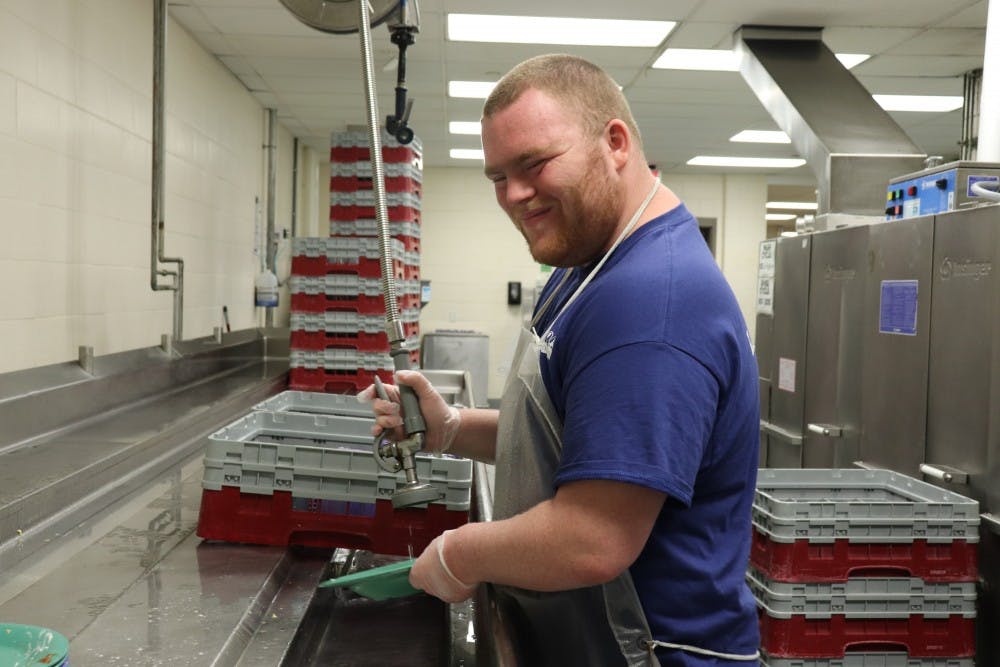Some people may know 1975 as the year the Vietnam War ended, or the year their hearts stopped as they watched “Jaws” terrorize New England on-screen — but how many know it as the year students with disabilities were finally allowed to enroll in public schools?
Less than 45 years ago, a child with disabilities was excluded from receiving a proper education in the public school system. During this time, children who were blind, deaf or had mental disabilities were left to be home-schooled by their parents or receive no education at all.
Shippensburg University’s special education professor David Bateman has experienced the effects of this concept first-hand with a member of his wife’s family who was restricted from going to school during this period. Instead, he paid to attend a Catholic school that provided appropriate services.
“It was legal to prevent him from going to school,” Bateman said.
In 1967 alone, about 200,000 children with significant disabilities were taken from their homes and placed in state institutions with minimal food and shelter, according to the Office of Special Education Programs.
While April is the month dedicated to autism awareness, one may consider the very different world Americans live in almost a half-century later.
SU has its own part in supporting students with disabilities in the community, through the HIRE ME program provided by the special education department.
SU has partnered with Big Spring High School and Shippensburg High School to give students with disabilities an outlet to learn job skills through individualized and hands-on job coaching from SU students, including special education majors.
HIRE ME prepares these high school students for real-life jobs after they graduate. The job coaches introduce them to a job and relevant skills, such as how to interact with supervisors and tips on how to react to situations in the workplace.
For many students, this is their first exposure to the workforce environment, according to education department Chair Thomas Gibbon.
Students are placed in various sites on campus, including Reisner Dining Hall, the Ceddia Union Building, the Dean of the College of Education and Human Services Dr. Nicole Hill’s office, and the Courtyard by Marriot Hotel in Shippensburg.
The driving force behind HIRE ME is to address the need for inclusion in the workforce and employment of individuals with disabilities in the community, according to HIRE ME’s graduate assistant Alexandra Jones.
She stressed the importance of acknowledging individuals with disabilities’ presence in the community and giving them what they need to thrive in society.
“These individuals are here, and they exist in our communities. I have never met a person with a disability that did not want to work. They want to be included,” Jones said. “More importantly, they want to be given an opportunity. They want to be able to go out and contribute.”
HIRE ME seems to be doing just that. The program is inviting these individuals into the conversation and asking, ‘What do you need?’
The program was created four years ago when Big Springs School District approached SU with the idea to start the program together. The district wanted its students with disabilities to obtain job experience, but had trouble finding sites for them to work due to Big Springs’ rural nature, according to Gibbon.
Now that all students are allowed to attend public school and receive an education, the need for jobs within the special needs community is becoming prevalent.
Not only is it providing a resource for job coaching, but it is training the community’s students with disabilities in transferrable jobs, such as working in the campus Starbucks and Dunkin, Gibbon said.
For example, a student working at SU’s Starbucks can now go on to apply those skills at the Starbucks in town.
Gibbon said the program has seen an increase of self-confidence from the students as they begin to see themselves as employees.
“We’re trying to see some growth in their perception of themselves as workers,” Gibbon said. “One of the problems for people with disabilities, historically, is that they were not given opportunities to try some of these things and, therefore, did not know they existed.”
HIRE ME has seen its workers graduate to competitive employment. The partnered school districts have another program after they leave HIRE ME that gives students an opportunity to move toward competitive employment.
Gibbon and Jones are both working to see the program grow with classrooms on campus, in which the students could come to campus all day and give them more time working on their job site.
Gibbon would like to expand to more diverse job sites on campus that are not food service-based, but teach students skills on warehouse sites or in landscaping jobs in a nursery.
HIRE ME is open to any SU student interested in volunteering and working with these high school students. The program is always hiring employment specialists.
To get involved, contact Alexandra Jones at suhireme@gmail.com
“My hope is that one person realizes within themselves, ‘I can really do this,’” Jones said. “And I think they learn that from all the people that help them.”


The Slate welcomes thoughtful discussion on all of our stories, but please keep comments civil and on-topic. Read our full guidelines here.